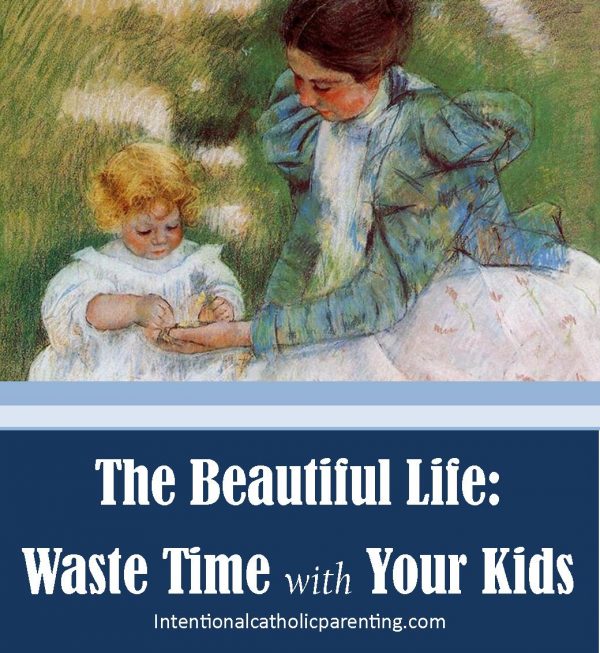“God’s great mysteries, boundless love, and sense of humor are revealed to us
at unexpected moments when we are quiet, alert, and prepared for encounter.”
– Kim Cameron-Smith
When I first became a mom, I remember taking a walk with my newborn, Aidan, in his baby carrier. It was October just after a long rain. I walked up through the lanes in the neighborhood near our apartment. I noticed the smoky smell of wet earth, the oak trees and crunchy fallen leaves on my path. I noticed a tiny flower fading against pine needles, autumn settling in and winter on its way.
I realized that day that I had not really breathed in the beauty of New England because I’d been a rushed and frazzled student for so long. I remember that day very vividly, because I knew my life had changed in more ways than I imagined when I welcomed my precious boy. I could see, hear, smell the world around me better. Hugging my baby, I began to notice things that were previously hidden behind a veil of stress and ambition.
And as he grew, Aidan began to notice oh so many things! He contemplated. He wondered. And with him and his 3 siblings who followed, I began to cultivate a life of wonder and contemplation with them, really because of them. Children are awestruck by the ordinary as they encounter the world anew. If we follow their lead, we will remember what we too once knew: life is beautiful.
In Dr. Tiffany Schubert’s intriguing article “Liberal Education, Wasting of Time, and Human Happiness,” she argues that the frenzied pace of the modern world and our over-reliance on technology have negatively impacted human flourishing. What has been lost is “time wasting.” GASP! Wasting time? Heaven forbid.
Isn’t it true that we feel compelled to fill every waking moment with productivity because otherwise we are, well, unvirtuous in some way? On the contrary, and as I found on that walk with my baby, wasting time is a virtue and essential to human well-being and happiness.
Why is “wasting time,” or what philosophers call leisure, so important for us? Well, obviously it allows us to recover from the demands of work. Too often, though, people recover just enough to avoid a physical or nervous breakdown. Dr. Schubert cites the physicist Dr. Alan Lightman here:
According to Dr. Lightman, the modern world, which he calls “the wired world,” is a world in which every moment is filled with projects. We are constantly working, and our advanced technology allows us to do so: “We take our smartphones and laptops with us on vacation. We go through our email at restaurants.”
Yes. For too many of us, the point of their leisure is to get our bodies ready to return to work. But leisure holds the promise of much more.
The men and women who shaped Western civilization understood that in leisure — in long country walks, in doodling in notebooks, in pondering the movement of water over a fallen log in a stream — connections are made and new understanding emerges. According to Josef Pieper, “[l]eisure is an attitude of the mind and a condition of the soul that fosters a capacity to perceive the reality of the world.”
Why do we live such crammed, shrunken lives? We have lost a taste for the beautiful. Not only for beautiful paintings, beautiful music, and beautiful landscapes, but for the beautiful mind and the beautiful act.
We have lost the beautiful life. Our lives are efficient but uninspiring because we don’t seek or recognize beauty anymore.
A beautiful life is one filled with wonder, lazy afternoons, and meandering conversation. Friendships are built here, not only with family and neighbors, but with God. God wants us to waste time with him! The spiritual life is really an adventure, full of “suspense and surprise, drama and danger, fun and freedom” (Brian Edgar, The God Who Plays, 9). Deep faith and spirituality are born in leisure. God’s great mysteries, boundless love, and sense of humor are revealed to us at unexpected moments when we are quiet, alert, and prepared for encounter.
Becoming a mother helped me recognize this. I’m grateful that becoming a mom forced me to slow down, to reinterpret myself and my aspirations in light of the little people I love. Turning my eye inward, toward home and relationships, saved me from an efficient, successful, but ugly and deflated future.
So, today, let yourself waste time with your children. Notice with them. Wonder with them. Notice them, and wonder at them, these extraordinary, unique blessings! When we practice living a contemplative kind of life with our children, we learn more about our children, ourselves, and God.
Resources
In Praise of Wasting Time by Alan Lightman
Leisure: The Basis of Culture by Josef Pieper
Play: How It Shapes the Brain, Opens the Imagination and Invigorates the Soul by Stuart Brown
The God Who Plays: A Playful Approach to Theology and Spirituality by Brian Edgar
Image credit: “Mother Playing with Child” by Mary Cassatt (1899)

